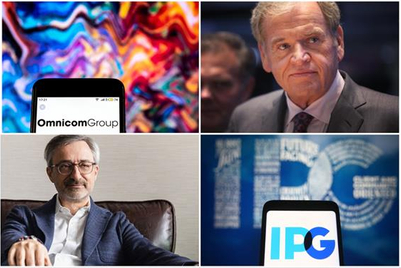
Smartphone addiction has reached a tipping point, but the tides may be turning towards decreased usage, according to a study from Hearts & Science.
The image of phone-addicted millennials—and now Gen Z—is a pervasive one, and with apps designed to massage people’s egos and keep the serotonin flowing, it’s no wonder that the devices can take up more than a quarter of a person’s day.
But as smartphone usage becomes even more widespread, the emotional, mental, and in some cases, physical implications of overuse are becoming more apparent, and as a result, more people are taking steps to reduce the time they spend in front of the small screen.
Omnicom Media Group's Hearts & Science took steps to quantify how much people are cutting back.
To that end, the agency conducted a 14-month-longitudinal study tracking actual smartphone app usage across more than 2,000 participants (with their permission) through a mobile meter installed on their smartphones.
The study included a survey of 1,000 respondents, representative of the US population, as well as in-person observation of day to day mobile behaviors.
The most striking finding was that 64% of study participants decreased their mobile app usage over the past 14 months, from five hours per day to four hours per day on average.
The remaining 36% actually increased their usage from five hours to six.
For the advertising industry, the implications of decreased smartphone usage are not insignificant, but where are people cutting back?
According to Renee Cassard, Hearts & Science chief audience officer, digital detoxing is becoming a more normal aspect of people’s lives, with large tech manufacturers such as Apple doing their part with reminders to limit screen time, and blue light filters designed to alleviate eye strain.
But the overwhelming reason why people chose to cut back was simple. Many felt that time spent on their smartphone (54%) was simply a waste.
The second most popular answer was that people wanted to spend more time with their friends and family.
"The value people get from scrolling just wasn’t there anymore," Cassard said. "Those that cut back were really happy; sleeping and exercising more, even consuming more TV or streaming content," she added, noting that a detox from smartphones did not necessarily mean limiting all screen time.
But cutting down smartphone usage may mean limiting time with some apps, and not others.
"People are pulling back from browsers, gaming, and social media in that order. This may be concerning as both social media and browsers are an ad-supported model."
Although, it should be noted that these categories still dominated people’s time even after the reduction.
"It’s not like it’s going away, but we need to be fluid with our allocations," Cassandra said.
"Some marketers may choose to deal with these findings by changing their creative, while others may work with more dynamic allocation, but everyone should be asking themselves- ‘where does my brand fit in with people’s daily goals and things they’re trying to achieve?’" she added.
"We have to bring value to their lives."


.jpg&h=334&w=500&q=100&v=20250320&c=1)
.jpg&h=334&w=500&q=100&v=20250320&c=1)

.jpg&h=334&w=500&q=100&v=20250320&c=1)
.png&h=334&w=500&q=100&v=20250320&c=1)
.png&h=334&w=500&q=100&v=20250320&c=1)









.jpg&h=268&w=401&q=100&v=20250320&c=1)

.png&h=268&w=401&q=100&v=20250320&c=1)